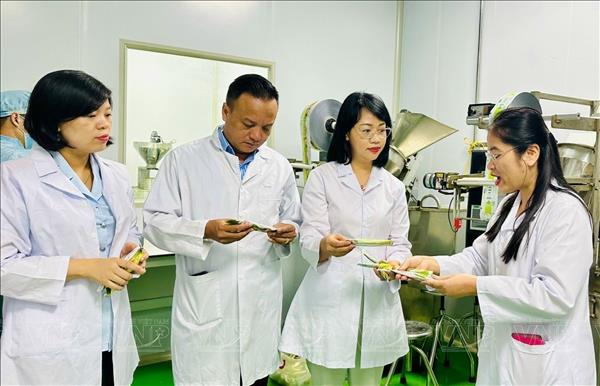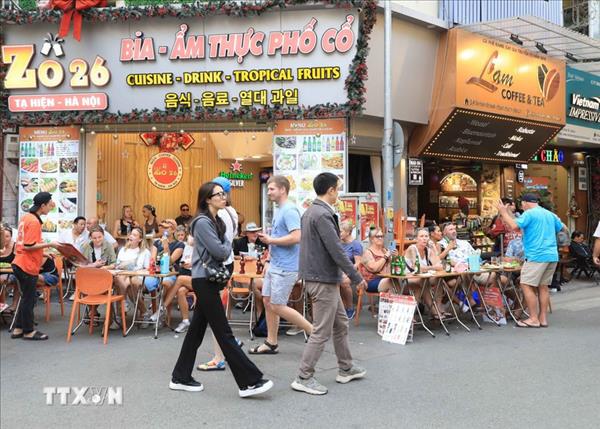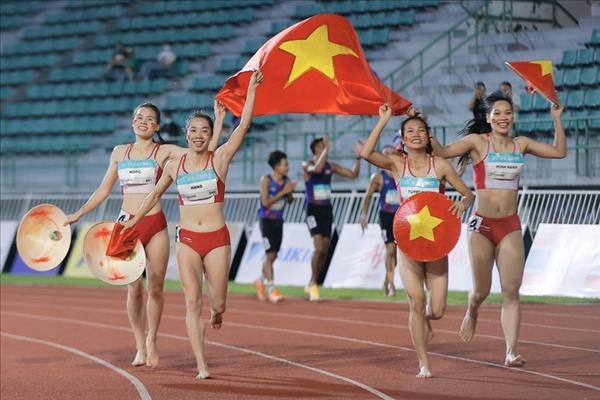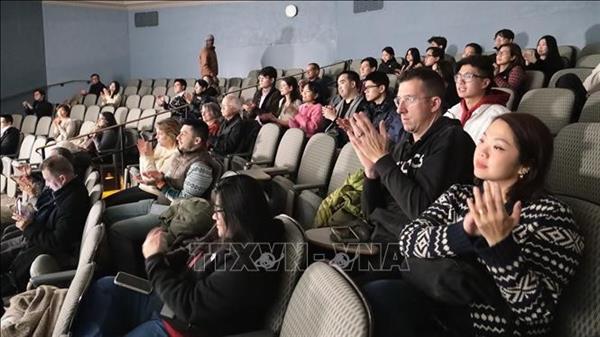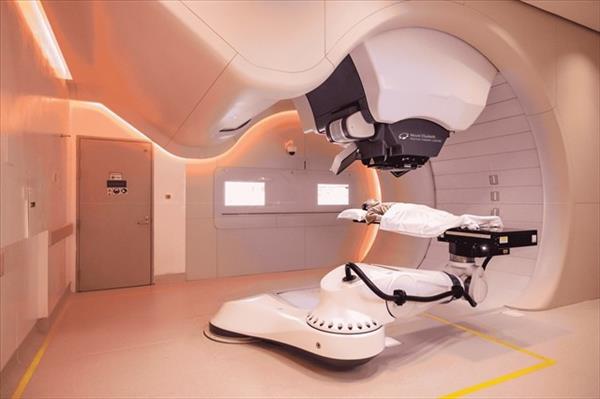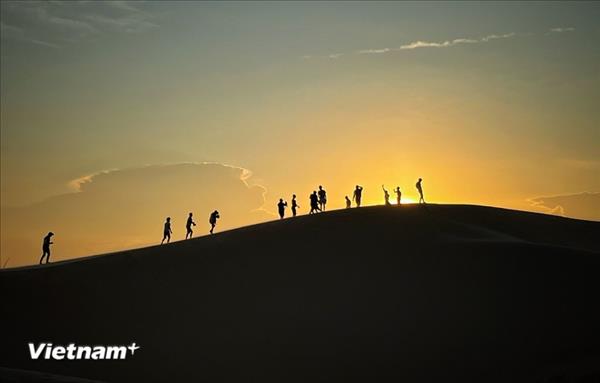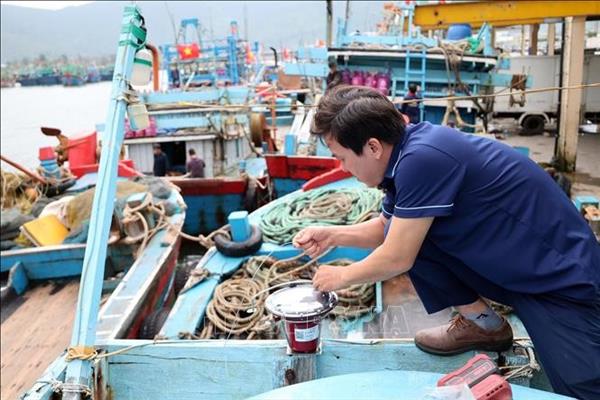Race of audacity and determination
The Institute of Biomedicine and Pharmacy and the Military Medical University rolled out the second phase of human clinical trials of the homegrown Nano Covax vaccine on February 26, developed by the Nanogen Pharmaceutical Biotechnology JSC.
A year ago, news of a development plan for a COVID-19 vaccine came as a surprise for researchers at the Company for Vaccine and Biological Production No 1 (VABIOTECH) under the Ministry of Health. At that time, they were in the UK studying and working with partners on influenza and rabies vaccines.
Vietnam recorded its first COVID-19 case in January 2020. VABIOTECH researchers at the time decided to join hands with their counterparts at the University of Bristol in the UK on COVID-19 vaccine studies based on viral vector technology.
It was an audacious decision, as the world had only started to contemplate COVID-19 vaccine research and no one could foretell a pandemic was on the way.
The virus then quickly spread around the UK, forcing the country to introduce social distancing measures. The research group therefore had to carry out its work in a prompt manner and all outcomes were transferred to Vietnam immediately.
Mac Van Trong, one of two researchers from VABIOTECH in the research group, said some members forgot to eat and sleep during those early days, in the hope of creating a complete product quickly. Their greatest challenge was when Europe entered lockdown, triggering a halt to all research activities.
As they had predicted such an eventuality, the group members strived to make the most of their time to meet the schedule.
“We were under huge pressure, because if samples could not be sent to Vietnam on time, our two months of research would be for nothing,” Trong said.
The group had to take full advantage of the remainder of their stay in the UK, maximising their research time in favourable conditions. They returned home just in the nick of time, on the last commercial flight before Vietnam suspended international air routes last March.
After spending two weeks in quarantine, the researchers then doubled their productivity.
At that time, VABIOTECH’s laboratory had become a “quarantine site serving research” for those returning from the UK. Just one month later, a candidate vaccine was introduced and ready for pre-clinical tests on animals.
“Animal testing at that time was the decisive factor in foreign labs evaluating our working method,” said VABIOTECH President Dr Do Tuan Dat. “Nobody at that time understood the technology we had chosen.”
Not only conducting research but also “finding a way out”, VABIOTECH’s scientists continually faced difficulties posed by the pandemic.
“The biggest problem was social distancing,” Dat said. “The supply of materials for vaccine research remained limited because Vietnam must import everything. Other countries suspended production, while transportation was challenging. The research group strived to find the quickest way to be self-sufficient in materials.” The math was about finding an effective vaccine that could be produced quickly and massively under relatively new technology.
As one of the units studying COVID-19 vaccines from the onset, when the coronavirus SARS-CoV-2 first appeared in Wuhan, China in January and began spreading to other countries, the Nanogen company kept close track of all relevant information and developments.
General Director of Nanogen Ho Nhan said on May 15, 2020 that the company had been assigned by the Ministry of Science and Technology to study a COVID-19 vaccine.
Later, in June, Nanogen tested the vaccine on animals and it was proven to be safe. Its Nano Covax vaccine was then approved by the Research Ethics Committee and used in human clinical trials, with the first three shots conducted on December 17.
With the efforts of researchers, Nano Covax has led the other COVID-19 vaccines being produced at home. Some 120 shots of varying quantities have been given to 60 volunteers, with efficiency of around 90 percent.
Nanogen’s Director of Research and Development Dr Do Minh Si said the company has mastered the technology for a decade, so it only took 5-6 months to produce a candidate vaccine for pre-clinical and clinical studies.
He added that the biggest difficulty faced by scientists has been time and the continual change of the virus.
Time poses the greatest challenge for researchers
Vietnamese scientists made constant efforts to develop a COVID-19 vaccine despite a wide range of formidable challenges.
Laboratories in Vietnam were not large enough to test COVID-19 vaccines on monkeys and mice, while sending vaccines to foreign laboratories was impossible. Nanogen’s scientists then decided to use the National Institute of Hygiene and Epidemiology’s biosafety lab to culture the coronavirus and test vaccines on hamsters, after determining that the lab was fit for the purpose.
“Many countries spent large sums on vaccine development even though they weren’t sure about the testing results,” Dat said. “It was too risky for Vietnam to try it that way.”
“We have never thought about being a leader in the race for a COVID-19 vaccine, but we are trying to do so and eagerly anticipate the vaccine’s success.”
Mass production is another challenge, because of the large costs involved, while inoculation must be carried out in an effective and quick fashion.
“Even as the vaccine was being developed, we considered the preparation of warehousing, human resources, and production facilities,” Dat said.
Safety is the first priority
Experts have said it came as no surprise when Vietnam was successful in studying COVID-19 vaccines because it had considerable experience in vaccine study and production.
Vietnam is one of 40 countries around the world to have begun human trials of a COVID-19 vaccine, after successfully producing coronavirus test kits early.
The country also has several other COVID-19 candidate vaccines under development: IVAC by the Institute of Vaccines and Medical Biologicals, VABIOTECH by the company of the same name, and POLYVAC by the Centre for Research and Production of Vaccines and Biologicals.
State-of-the-art technologies have been applied in vaccine development. Most made-in-Vietnam vaccines are likely to be effective against the COVID-19 variants, though further evaluation will take time.
According to the head of the Ministry of Health’s Administration of Science, Technology and Training, Pham Van Tac, Vietnam has made a name for itself on the global COVID-19 prevention map. Along with its achievements in controlling the pandemic, it is proud to be among only a few countries to have taken a giant leap forward in COVID-19 vaccine development.
VNA/VNP

